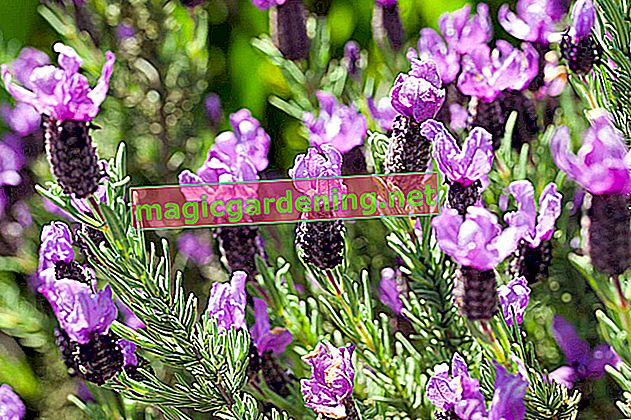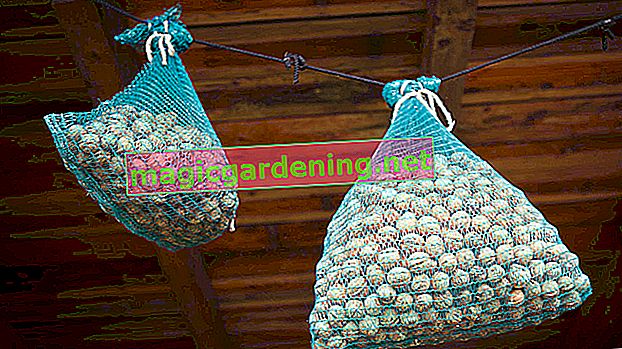
Should you water fuchsias?
As typical rainforest plants, fuchsias love moisture, which is why the root ball should never dry out. In addition, the plants like it if you spray them all around from time to time - too little humidity only causes the buds and flowers to dry out. By the way, rainy but warm summers are ideal for fuchsias, as they thrive particularly well. In very hot and dry periods, you should water at least twice a day. But even if fuchsias need moisture, they - like so many other plants - do not tolerate waterlogging at all.
also read
- Should you cut fuchsias before wintering?
- Hibernating fuchsias properly - this is how you get the exotic species through the cold season
- Fuchsias inspire with an extremely long flowering time
When and with what can I fertilize my fuchsias?
The richly blooming fuchsias are also heavy eaters, which is why they should be fertilized at least every three to four weeks during the growing season. A commercially available liquid fertilizer for flowering plants is sufficient for this.
Does it make sense to mulch fuchsias?
Since fuchsias prefer a moderately moist plant substrate and - especially when they are rather sunny - “cool” feet, you should mulch the plants with bark mulch or similar. This not only prevents the soil from drying out, but also keeps the heat-sensitive roots cool.
When and how often should potted fuchsias be transplanted?
If possible, fuchsias in pots should be repotted once a year, the best time for this being spring. Use fresh, pre-fertilized substrate and make sure to start regular fertilization a few weeks later.
How are fuchsias cut correctly?
To prevent the woody bushes from becoming bald over the years, they should be cut back every year in early spring. Cut back diseased, withered and dried-up parts of the plant generously, but without cutting too deeply into the wood. In the course of the summer, dead shoots should also be removed.
Which pests or diseases are common in fuchsias?
Although fuchsias are considered to be quite robust, they are often attacked by pests or diseases - mostly due to poor care or bad weather. In terms of animal infestation, bedbugs, spider mites and aphids are the most common; when it comes to diseases, gray mold rot, fuchsia rot and root rot caused by waterlogging and soil bacteria are predominant.
Fuchsias don't bloom - why is it?
If fuchsias don't want to bloom, there can be many reasons. Mostly, however, there is insufficient fertilization and / or an unsuitable location behind it.
Are fuchsias hardy?
There are specially bred, hardy fuchsia varieties that still require winter protection. Non-winter-hardy species and varieties, on the other hand, are best left cool but frost-free.
Tips
When fertilizing, the soil should be moist, but not dry - otherwise the roots cannot optimally absorb the nutrients and they are also in danger of being burned.
 Hardy fuchsia 'Blue Sarah' 8.78 EUR Buy at baldur
Hardy fuchsia 'Blue Sarah' 8.78 EUR Buy at baldur








